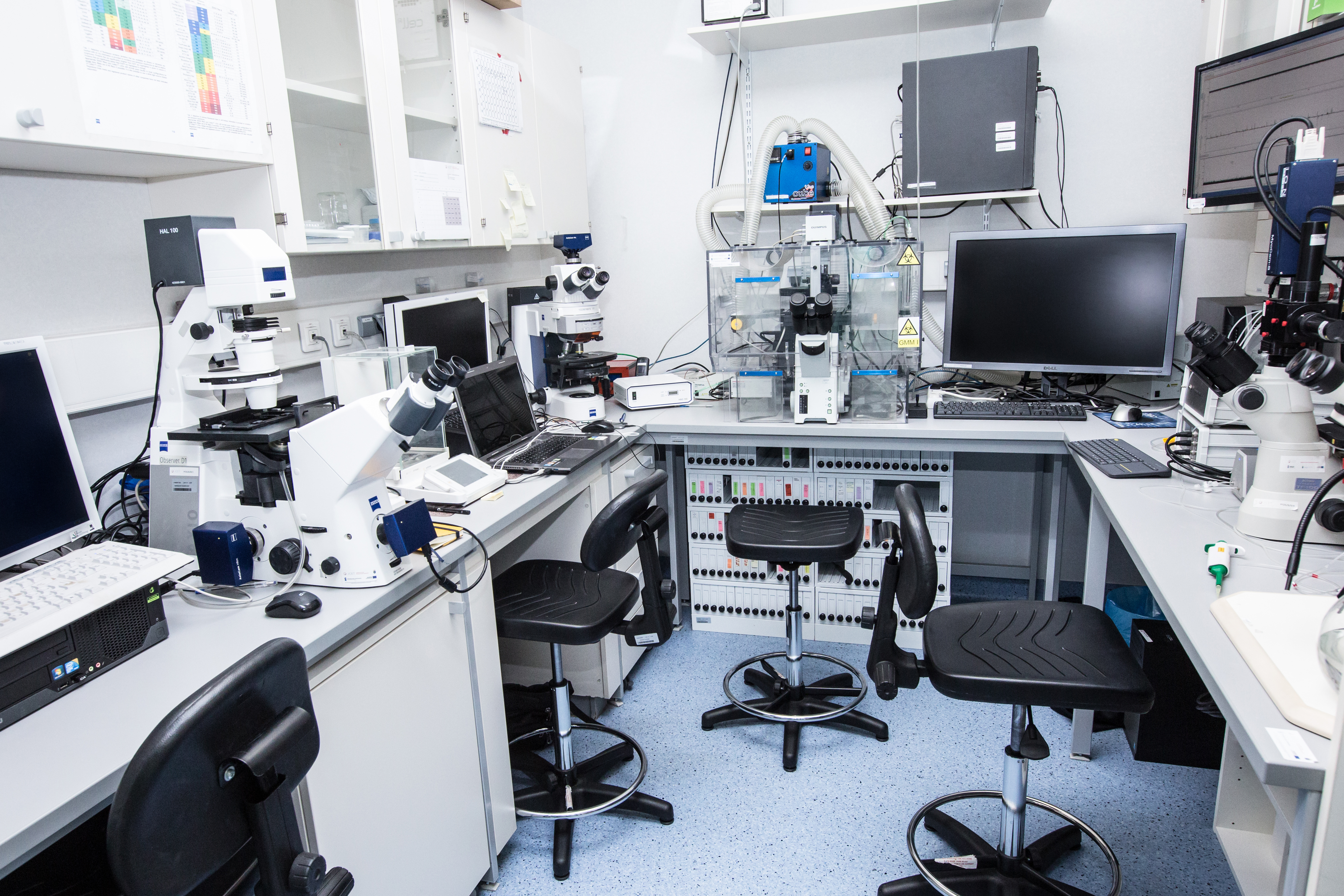
Research topic: Badania z wykorzystaniem kinaz w leczeniu cukrzycy.
Project description:
In recent decades, significant changes have been observed in lifestyle factors such as diet, physical activity, and exposure to microorganisms, which contribute to the rising prevalence of overweight and obesity worldwide. This, in turn, leads to numerous complications and serious conditions associated with metabolic disorders, such as diabetes. Diabetes is currently treated as a chronic disease requiring lifelong maintenance treatment. Natural and long-lasting regeneration of beta cell mass resulting in actual diabetes cure is an important milestone that we all anticipate.
Our research primarily focuses on developing specific inhibitors that will improve the durability of beta cell function. In our experiments, we utilize modern in vitro cell models, such as isolated human pancreatic islets, as well as laboratory mice models, to understand the mechanisms of regeneration of pancreatic endocrine cell fractions.
The doctoral candidate will participate in research activities as part of the project: "Smart tissue engineering to change the paradigm of diabetes treatment." The research will be conducted at the Malopolska Centre of Biotechnology, Jagiellonian University. The doctoral candidate will collaborate with the team involved in the project's implementation.
Scope of work:
- Objective: Investigate kinase interactions in cellular environments to unravel signaling pathways and their impact on cellular processes.
- For Cell Culture and Maintenance will be expected to:
a) Establish and oversee unique cell lines and organoids derived from individuals diagnosed with diabetes.
b) Optimize culture conditions for consistent growth.
- For Kinase Interaction Analysis:
a) Employ molecular tools to visualize interactions,
b) Quantify dynamics using imaging and analysis,
c) Cell Signaling and Perturbation.
- For Inhibitory Screening:
a) Devise assays to test kinase inhibitors,
b) Assess inhibitor impact on pathways.
- For data Analysis and Collaboration:
a) Analyze results statistically,
b) Collaborate with peers and present findings.
- For Ethical and Safety Guidelines: Adhere to ethics and safety protocols.
- Outcome: Contribute to cell biology knowledge by deciphering kinase interactions and their cellular effects.
Required professional qualifications:
- The PhD student must hold Master's degree in Life Sciences discipline.
- The selected candidate should have practical laboratory experience, supported by references of the academic tutor and qualifications and suitability for research.
- The PhD Students should have very good knowledge of English (written and spoken),
- ready to learn the structure related programms and calculations,
- attending courses and be creative with good and responsible attitude, multitasking approach, and good organizational capacity.
Limit of places: 1
How to apply? Next recruitment in September!
Salary?
Doctoral scholarship + grant scholarship
How to apply?
To make the application process fast and easy, please follow the rules:
1. Be familiar with the admission rules 2023/24 [PL version, EN version]
2. Prepare the required documents
3. Follow the recruitment schedule
4. Send your application early enough to the Online Application System
More information:
In the case of exposure to factors that are harmful, strenuous, or hazardous to health, the candidate is referred to a medical examination by an occupational physician at the time of enrolment. The candidate is required to provide a medical certificate stating that there are no contraindications to undertaking education within the deadline set by the education programme co-ordinator (applies to selected education programmes only).
Higher education certificates obtained abroad should:
- bear an Apostille when the country issuing the document is covered by the Convention Abolishing the Requirement of Legalisation for Foreign Public Documents, done at The Hague on 5 October 1961 (Journal of Laws of 2005, No. 112, item 938), or
- by subject to legalisation, in other cases.
In particularly justified cases, at the request of the Grant Manager, the Director of the NŚiP Doctoral School may waive the requirement to provide apostille or to submit diplomas of higher education or other documents for legalisation.
Any document issued in a language other than Polish or English must be accompanied by a certified translation into Polish or English.
Accommodation:
It is possible to apply for a place in the Doctoral House. Receipt of a place is determined by the availability of vacant places and the fulfilment of the conditions described on the
Doctoral Student Society website.IMPORTANT:
A person admitted to a doctoral school commences education and acquires the rights of a doctoral student upon taking the oath. The taking of the oath is done by personally signing the oath in the office of the Education Programme.
Health Insurance – important changes
As of 1.10, the rules for the registration of doctoral students for health insurance by the University are being changed. After this date:
- Citizens of Poland, European Union [EU], European Free Trade Association [EFTA] and holders of the Pole's Card, up to the age of 26 should be insured as members of their families, if these have insurance in the EU/EFTA. The insurance is confirmed by a valid EHIC (European Health Insurance Card) card issued in the country of insurance application. Once they have reached the age of 26, they will apply for health insurance coverage at the Jagiellonian University.
- Other doctoral students (from outside the EU, EFTA) have to pay for their own voluntary health insurance at the Social Security Health institution [ZUS] (on the basis of a contract concluded with the Polish National Health Fund [NFZ] facility) or take out a commercial insurance with a guarantee amount of no less than EUR 30000. They may have both of these insurances. It is insufficient to have only medical packages (subscriptions) in private facilities, as these do not cover the costs of possible hospitalisation. We recommend that each candidate, in particular a foreign candidate, takes out insurance for the duration of the journey and a minimum of the first month of stay in Poland (until the formalities have been completed upon arrival).



